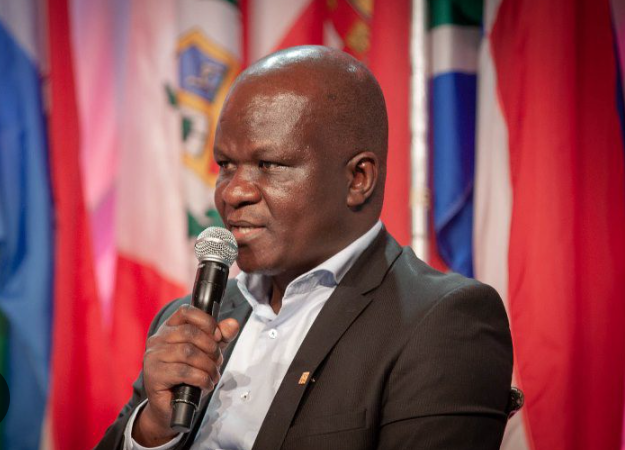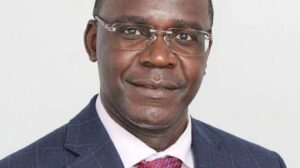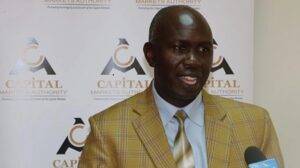The former CEO of the Kenya Union of Savings and Credit Cooperative Society (KUSCCO), George Ototo, has come under scrutiny after being questioned by the Directorate of Criminal Investigations (DCI).
The case involves the alleged misappropriation of over Ksh. 10 billion from KUSCCO, a staggering amount that has drawn widespread attention.
Reports indicate that Ototo was summoned to DCI headquarters, though media access was heavily restricted.
Despite denials from DCI officers about his presence, sources confirmed that Ototo was indeed at the premises, leading to suspicions about attempts to obscure the proceedings.
The case against Ototo is part of a broader investigation into significant financial discrepancies within KUSCCO, which have been brought to light by a forensic audit conducted by the Sacco Societies Regulatory Authority (SASRA).
The audit has revealed a shocking mismanagement of funds, with billions of shillings missing from the cooperative’s accounts.
According to the findings, there was a substantial gap between the declared Sacco deposits and the actual funds held, raising alarms among Sacco members and the public.
KUSCCO, an umbrella body for Saccos in Kenya with over 4,000 affiliated institutions, has been a pillar of the cooperative movement since its establishment in 1973.
However, under Ototo’s leadership, the organization appears to have strayed from its original mission.
The audit revealed that funds meant for Sacco members were diverted into questionable ventures without proper oversight or consent.
One of the major points of concern is the Langata Mall, a multi-million shilling project linked to Ototo, which was financed through a Ksh. 60 million loan, allegedly without KUSCCO’s authorization.
As the extent of the financial mismanagement became clearer, the Ministry of Cooperatives intervened, disbanding KUSCCO’s board earlier this year.
This action followed an inspection conducted by the Commissioner of Cooperative Development in October 2023, which had already revealed discrepancies in KUSCCO’s operations.
Alongside Ototo, KUSCCO’s chairman, George Magutu, was also ousted.
Their removal marked the beginning of a major overhaul of the organization’s leadership.
In January 2024, Grant Thornton, an international audit firm, was brought in to conduct a detailed audit of KUSCCO’s finances.
The findings from the audit have only added to the gravity of the situation.
The Ministry of Cooperatives reported that over Ksh. 5 billion had been irregularly withdrawn over an 11-year period between 2013 and 2024.
These withdrawals, which went into private pockets, have left KUSCCO in a precarious financial situation.
The cooperative has reportedly been relying on overdrafts to meet its obligations, further exacerbating concerns among its members.
In light of these revelations, the current Cooperative Cabinet Secretary has promised stringent measures to restore accountability in the sector.
There have been calls for criminal charges against Ototo and other implicated directors, as the cooperative movement in Kenya grapples with the impact of this scandal.
The case has raised serious questions about governance in Kenya’s cooperative sector, with many Sacco members fearing for the safety of their hard-earned savings.
The KUSCCO scandal underscores the need for stronger regulatory oversight and transparent financial management within cooperatives.
The forensic audit has painted a grim picture of how unchecked leadership can erode the financial stability of an institution meant to safeguard members’ interests.
All eyes will be on whether those responsible will be held accountable, and if justice will be served to the Sacco members who stand to lose the most.
This case not only highlights the failings within KUSCCO but also sets a precedent for how such institutions must be managed to prevent similar crises in the future.





















Add Comment